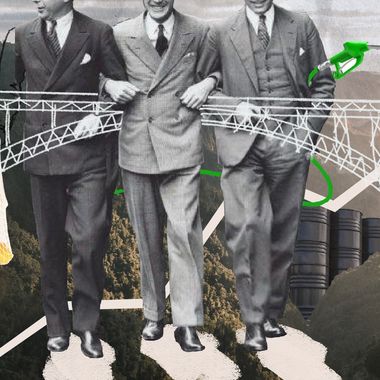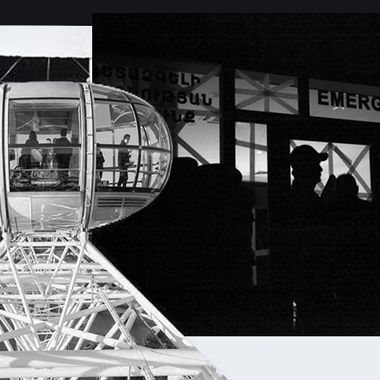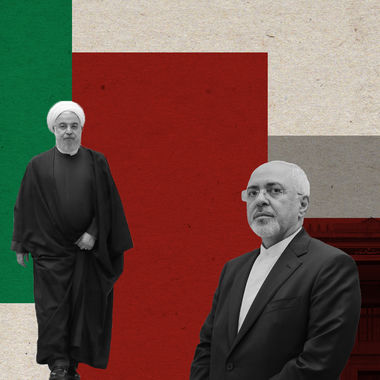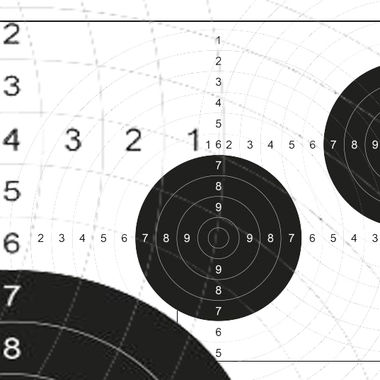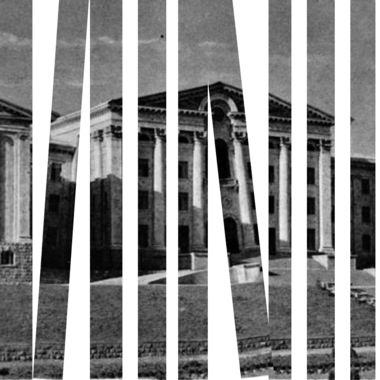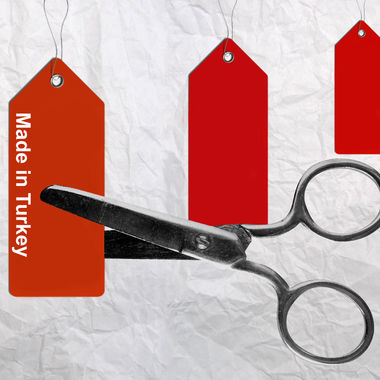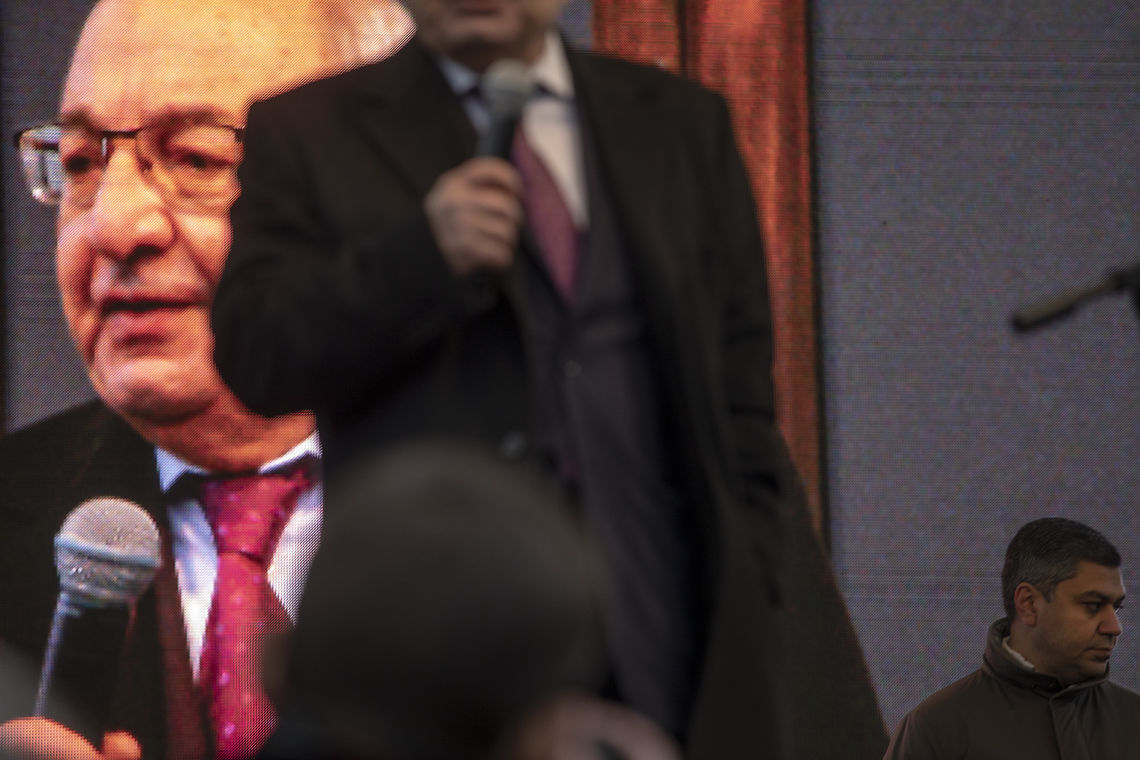
Since the hours before the November 10 Russian-brokered trilateral agreement that ended the 2020 Artsakh War, a coalition of 16 opposition forces has been demanding the resignation of Prime Minister Nikol Pashinyan and his government. (There were originally 17 political parties listed on the declaration, but on November 12, Tigran Urikhanyan, an MP who leads the Alliance Progressive Centrist Party but was elected off the Prosperous Armenia Party list, announced that he and his party were never part of the joint discussions.) On Saturday, December 5, during their largest rally yet, the coalition issued an ultimatum to the Prime Minister: resign by noon on Tuesday, December 8 or face countrywide protests and acts of civil disobedience.
The coalition has proposed setting up a caretaker government called the National Movement for the Salvation of the Homeland (hereinafter referred to as the Homeland Salvation Movement) that would lead negotiations within the framework of the truce agreement to prevent what they said was the impending loss of Armenian statehood, implement post-war recovery efforts and hold fresh elections within a year through a constitutional process.
On December 3, two days before the ultimatum was issued, the Homeland Salvation Movement had announced that Vazgen Manukyan would be their candidate for the Prime Minister’s office. Manukyan was Armenia’s first Prime Minister (1990-1991) and then acting Defense Minister (1992-1993). He ran unsuccessfully against Levon Ter-Petrosyan in the 1996 presidential election, in which OSCE/ODIHR observers noted mismatches between the number of ballots issued and those counted.
Manukyan delivered the following speech at the December 5 rally in Yerevan’s Opera Square:
“It is very symbolic that we are gathered at the very square where in 1988 our nation pledged to build a free, independent and fair state, to extend a helping hand to our brothers and sisters in Artsakh and promised them security and reunification with Armenia.
“A significant portion of what we set out to achieve has been implemented. With all its shortcomings, we built an independent state, we won the war, the armies of Armenia and Artsakh were considered one of the most powerful in the region. In collaboration with the diaspora, we consistently elevated our international influence. Now, 30 years later, we have gathered at the same square with an injured dignity, colossal human and territorial losses and every effort toward the regulation of the Artsakh issue almost wasted. However, now Armenia is also at stake. Even the existence of Armenia is now in danger when Azerbaijanis mark our borders by crossing them and face no resistance from our state bodies. This is the situation. Should we adapt to it?
“All the issues we had in 1988 are on the agenda again, and all of them need to be solved again. They say, when you try to solve a problem and fail, you should change your methods and not the problem. How did we believe those sweet words? What happened to Armenia? We became each other’s enemies; Armenians from Armenia turned against Armenians from Artsakh, the previous against the new, black against white, honest against dishonest.
“One of the first things Nikol did was to decapitate the Artsakh army. The best commanders of Artsakh, who had the experience and knowhow of the situation, were removed from the army. During the war, they were waiting outside the door but Nikol had a list of people who had the right to enter the [military] headquarters and who did not. The generals were not granted the right to be in the headquarters. The Armenian army was also being discredited. We lost all our allies. A powerful ally like Russia lost trust towards us, China turned its back, Iran was not trusting us, and we were left to move forward alone. Pashinyan’s conflicting and provocative announcements brought us closer to the war.
“The war started and the ignorant and traitorous decisions made from day one brought us to this point. We could have prevented the war, we could have won the war, we could have put a stop to it sooner with less losses, but none of this happened. Now there is the second disgrace: No nation in the world is able to understand why the leader that consistently led Armenia towards defeat is still in power. And this is not only a matter of pride, every day [he is in power] throws us back for months. The government is not only paralyzed, they have no national aspirations. These are people who have no essence, not fit for anything. The sooner we remove them, the sooner we will return to the road that we took in 1988 and that led us to victories.
“Nikol Pashinyan should understand one more thing, the sooner he resigns, the better for him. if the movement does not succeed, the rabid people will devour him. This movement is the means to change the situation in Armenia in a civilized manner. If it fails, it will get worse. But [the movement] will go forth under any circumstance, there is no doubt.
“An interim government will be formed. Let me list some of the issues that the transitional government will deal with as now is not the time to get into details. I will list these issues but not as a matter of priority, because they all need simultaneous solutions.
“The trilateral agreement, which has instead been formulated as an announcement: We will never come to terms with that document, but it is de facto being implemented and we cannot change it or refute it. That would mean a war with Azerbaijan and Turkey. It would also mean a falling out with Russian peacekeepers and, for the time being, thanks to Nikol, we are not in a position to do that. We cannot even keep Sotk [a gold mine on the border of Kalbajar District and Armenia’s Gegharkunik region]. However, that agreement has been written quite poorly, with many omissions in places where there should have been dozens of pages of text. Our new government, through negotiations, should turn every uncertainty in Armenia’s favor.
“The issue of security: We need to restore our army, restore our combat readiness, transform the army into a contemporary army. Our special relationship with Russia is also a matter of security. In addition to our natural relationship with Russia, the region is such that, if you are not affiliated with Russia, you are left with Turkey. We share many common interests with Russia, we have none with Turkey. And all those people who suggest now that we start dialogue with Turkey, they consciously or unconsciously, willingly or otherwise, are serving the interests of the enemy.
“We have other allies as well, not only Russia. We should restore those allied relationships and the trust lost. There will be a large consolidation of powers against Turkey; the world will not forgive Turkey its impudence and, if an anti-Turkey alliance comes to be, we should be a part of that alliance. We should get back to the negotiations process and restore the Minsk Group format. That is of utmost importance for us.
“The issue of the POWs, the missing persons, the issue of the wounded soldiers, the matter of the families of the deceased soldiers, the issue of providing assistance to the refugees who ended up in Armenia as refugees as a result of our mistakes. We should create conditions in Artsakh for the residents of areas still under our control to be able to return.
“The healing of the environment in Armenia, which does not mean only that we should be kinder to one another. External forces are at work in Armenia, who are intentionally splitting the nation. Their intentions are not good or bad; they have been using the Armenian nation to solve their geopolitical issues for the last two and a half years, using us as a toy. We should clear this field.
“The bigger the task we set out to accomplish, the more united we will be. We should not diminish the problems in front of us; we should solve the considerable issues facing us. Every defeat is the beginning of the next victory. In a short time, we should stand up, regain our self-confidence, trust our strength and move forward. We should have victories after the defeat, rejoin the ranks of victorious nations.
“There are many obstacles but, right now, one of the main obstacles keeping the nation from moving forward is Nikol Pashinyan. He should leave, let him leave voluntarily or else he will leave by force.
“Victory!”
Demands for Resignation
The opposition factions in Armenia’s parliament have also called for the resignation of PM Pashinyan. The Prosperous Armenia Party (PAP) led by Gagik Tsarukyan is part of the coalition backing the candidacy of Vazgen Manukyan. The other opposition faction, the Bright Armenia Party (BAP), is also calling for Pashinyan’s resignation but rejected an offer from ARF leader Ishkhan Saghatelyan to join the group backing Manukyan’s candidacy. They have declared that their candidate for the office of Prime Minister remains BAP party leader Edmon Marukyan. During BAP-organized parliamentary hearings held on December 7, Marukyan said that Pashinyan has come to personify the defeat of the country and that parliament should choose an interim prime minister because it [the parliament] will not be able to serve out its term. He did say that political forces in parliament, including Pashinyan’s ruling My Step faction, must do everything in their power to mitigate violence in the country.
Armenia’s President and titular head of state Armen Sarkissian, in a video address on November 17, also called for the resignation of the country’s Prime Minister. He said that he had held various consultations with political forces, both parliamentary and extra-parliamentary, with representatives of civil society, compatriots from different diaspora organizations and individuals. The President said that the absolute majority agreed that the resignation of the Prime Minister, followed by snap parliamentary elections in accordance with the Constitution, was necessary.
The three former presidents of Armenia - Levon Ter Petrosyan, Robert Kocharyan and Serzh Sargsyan - have also called for the resignation of Pashinyan and his government.
On December 8, the two Catholicoi of the Armenian Apostolic Church added their names to those calling for the resignation of the Armenian government.
In a video address, His Holiness Karekin II, Supreme Patriarch and Catholicos of All Armenians noted that the Armenian nation is living in hard days of pain and anxiety after the horrors of war. As he said, the martyrdom of thousands of our heroic children, the loss of a significant part of historical Artsakh, the catastrophic consequences of the war, the greatest threat of external danger have shaken people's souls, and threatened solidarity, national unity in the homeland and the diaspora. “The current difficult situation, the deep internal political crisis, has posed new dangers to our native country, making vital the need for an urgent solution to the serious challenges that have arisen,” Karekin II said.
His Holiness noted that, after the Church held meetings with Armenia’s President, the head of the National Assembly, and representatives of various national and political organizations, it was clear that this crucial situation must find its solution exclusively in a constitutional way, under conditions of national solidarity and common sense. Karekin II said that he also met Prime Minister Nikol Pashinyan and advised him to resign to prevent possible clashes within society and its tragic consequences.
“We call on the National Assembly to act responsibly at this crucial moment for our homeland, to listen to the demands of the general public, to elect a new Prime Minister in consultation with the political forces and to form an interim government of national unity. Only a government composed of professional people with public trust can be able to solve the problems facing our people, restore national solidarity and unity, organize extraordinary parliamentary elections of indisputable necessity,” the Catholicos said.
In his own video address, Aram I, Catholicos of the Great House of Cilicia, called on Nikol Pashinyan to resign and the Armenian National Assembly to elect a new Prime Minister. During his speech, he stressed that the Armenian people are in deep pain and people’s emotional state of being defeated has left the nation in uncertainty and despair. As the Catholicos said, there is not an Armenian in the world who does not suffer the great loss of the nation, and the people demand a comprehensive and clear account of this terrible tragedy.
“In the current crisis, we call on Prime Minister Nikol Pashinyan to resign from the post of Prime Minister, giving the National Assembly an opportunity to respect the constitutional order and process and elect a new Prime Minister. Our expectation is that the conciliatory transitional government to be formed under the leadership of the new Prime Minister to be elected will in turn give priority to the holding of early elections for the National Assembly.”
The Catholicos also stressed that the Armenian nation must stay away from approaches and actions that provoke polarization, create divisions and sow the spirit of intolerance. “The internal unity and collective will of our people must become a guarantee for tomorrow's strong Armenia and Artsakh,” the Catholicos said.
Resignations and Dismissals
Following the defeat in Artsakh, a number of state officials and parliament members have resigned or been dismissed including: Minister of Foreign Affairs Zohrab Mnatsakanyan, Defense Minister Davit Tonoyan, Minister of Emergency Situations Feliks Tsolakyan, Minister of Economy Tigran Khachatryan and Minister of Labor and Social Affairs Zaruhi Batoyan. Minister of Education, Science, Culture and Sport Arayik Harutyunyan resigned but was later appointed as senior advisor to Prime Minister Pashinyan. A number of Deputy Ministers also resigned including Irina Ghaplanyan (Deputy Minister of Environment), Shavarsh Kocharyan (Deputy Minister of Foreign Affairs) and Avet Adonts (Deputy Minister of Foreign Affairs). The governors of the Syunik (Hunan Poghosyan) and Shirak (Hovsep Simonyan) regions of Armenia also tendered their resignations.
Three MPs from the ruling My Step faction, left the party and are now sitting as independent MPs: Vardan Atabekyan, Taguhi Tovmasyan and Gor Gevorgyan. Two others, Gayane Abrahamyan and Argishti Mekhakyan, resigned their seats and will be replaced by the next candidates on the My Step list from the December 2018 election. MP Lusine Badalyan had also indicated her intention to resign her seat if corrective action was not taken soon. Currently, the My Step faction still has 85 out of 132 seats in parliament; still a clear majority, but now shy of a two-thirds supermajority (needed for measures such as passing constitutional amendments).
Other resignations included Shushan Stepanyan and Artsrun Hovhannisyan, who had been the public face of the Defense Ministry’s communications throughout the 44-day war.
“A Movement and a Current”
There is no doubt that Armenians have been traumatized by the crushing defeat in Artsakh, by the thousands of servicemen, most younger than 20, that had their lives cut short, by the thousands of wounded and maimed, the hundreds that are still missing or enduring torturous conditions as prisoners of war. Videos posted to social media of Armenians, at least one of them an elderly civilian, being beheaded by Azerbaijani soldiers are proving the worst fears of what life for Armenians under Azerbaijani rule would look like. The fact that this all came after a month of official pronouncements by Armenian officials that the war would undoubtedly end in victory has only compounded that trauma.
Faith in Nikol Pashinyan’s leadership has been severely shaken and will never return to the levels of approval he enjoyed before the war. Citizens are facing the critical strategic and operational failures that led to this point, committed both by the current government and previous ones. Ironically, one of the factors hindering the momentum of the calls for Pashinyan’s resignation is the identity of those organizing it. Serzh Sargsyan’s Republican Party of Armenia is one of the 16 political parties leading the movement. They are joined by others that, at various times, had participated in coalition governments with them. CivilNet’s Eric Hacopian described those opposed to Pashinyan as “a movement and a current,” where the movement was represented by organizers from the 16 parties and the current stood for a wider segment of society that was angry at the government’s failures but was staying off the streets so as not to be associated with the previous government or contribute to their return to power. The selection of Vazgen Manukyan, who is still the head of the National Democratic Union (NDU) Party, as their candidate seems to acknowledge that point. The NDU has never governed in a coalition with the Republican Party of Armenia before.
Deadline Passes
In a video address earlier today, ARF leader and coordinator of the Homeland Salvation Movement Ishkhan Saghatelyan said that, since Pashinyan has not tendered his resignation per their demands, starting from noon until 5 p.m., Armenia’s citizens have the legitimate right to take peaceful actions and conduct acts of civil disobedience to express their protest and demands. Following his announcement, members of the movement launched a number of protests and acts of civil disobedience in various parts of the capital Yerevan and also briefly shut down the city’s subway system. Dozens of protesters were detained. Smaller protests were also held in other cities in Armenia, including Gyumri and Vanadzor.
Photo by Eric Grigorian.
also read
The Turkey-Georgia-Azerbaijan Regional Triangle
By Anna Barseghyan
Turkey, Georgia and Azerbaijan institutionalized their triangle long before the 2020 Artsakh War and have established deep roots of cooperation.
Consistent Passive Aggression and Realpolitik
By James Derounian
Throughout the 2020 Artsakh War, the UK Government was mostly impotent, writes James Derounian. It instead has and continues to provide blind, sometimes tacit, support for Turkey directly and its ally Azerbaijan indirectly.
Nagorno-Karabakh and Iranian Public and Foreign Policy
By Hamed Kazemzadeh
The 2020 Karabakh War has had regional implications for neighboring countries, specifically on Iranian public and foreign policy. Hamed Kazemzadeh looks at the internal and external dimensions of Iran’s stance.
12 Imperatives for Securing Armenia’s Future
By Raffi Kassarjian
We have a maximum of five years to significantly improve the security of the country along a number of fronts, requiring a collective will, sacrifices, trade-offs and personal choices unlike anything most of us have faced in our lifetimes, writes Raffi Kassarjian.
The 2020 Artsakh War: What the World Lacks Now Is Leadership
By Daniel Tahmazyan
The isolationism of former global powers in a fractured world has left vulnerable countries at the mercy of power-hungry regional players.
Belarus Was Sanctioned, Why Not Azerbaijan?
By Harout Manougian
Western countries imposed sanctions on Belarus’ Aleksandr Lukashenko for cracking down on democracy and attacking civilians. Ilham Aliyev has actually been more brutal but has not been penalized.
Early Elections Are Unlikely But Here Is What They Could Look Like
By Harout Manougian
Following Armenia’s major military defeat in Artsakh, many people in the country, including a number of political forces, are calling for the resignation of Prime Minister Nikol Pashinyan. Such a move could trigger a number of different scenarios.
Armenia to Ban Turkish Products
By Astghik Karapetyan
Taking into account Turkey’s overt support to Azerbaijan during the 2020 Artsakh War, Armenia’s government has decided to ban the import of Turkish goods for six months. The ban will take effect on December 31 of this year.
Podcasts
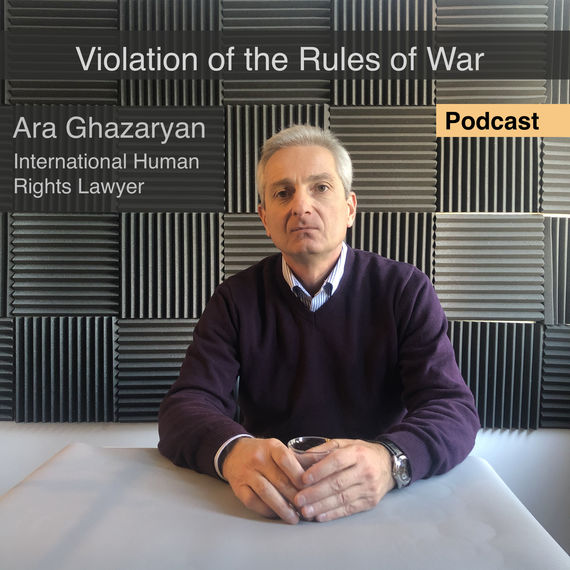
During the 2020 Artsakh War, Azerbaijani forces violated the rules of war and committed severe war crimes. International human rights lawyer, Ara Ghazaryan, who has taken numerous cases to the European Court of Human Rights, speaks about the nature of these crimes and what steps are being taken.
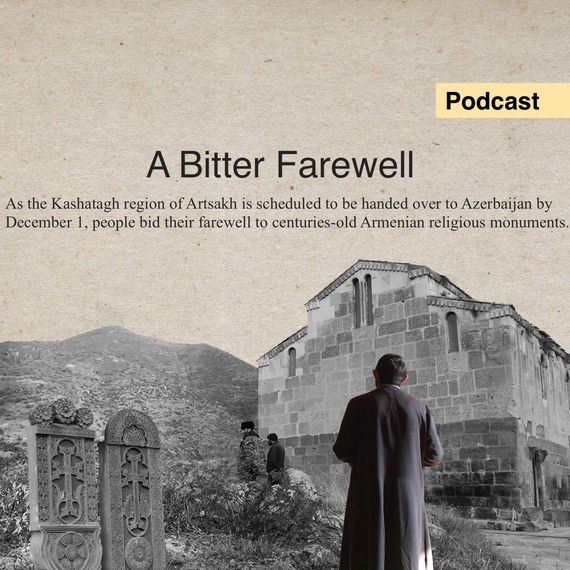
As the Kashatagh region of Artsakh is scheduled to be handed over to Azerbaijan by December 1, people bid their farewell to centuries-old Armenian religious monuments.


